As I write these lines, I can’t help but think that just a year ago, on March 15, 2020, the first COVID-19 death was reported in Guatemala. On March 17, the state closed the borders and imposed a stage of siege. One month later, on April 23, I closed the NISGUA office in Guatemala for what we thought would be just a few months.
So, I take a moment to pause and to mourn in memory of all the people who have died from this virus and for all of us who continue to be impacted by it. A moment for all of us, and for all of our losses.
****************************************************************
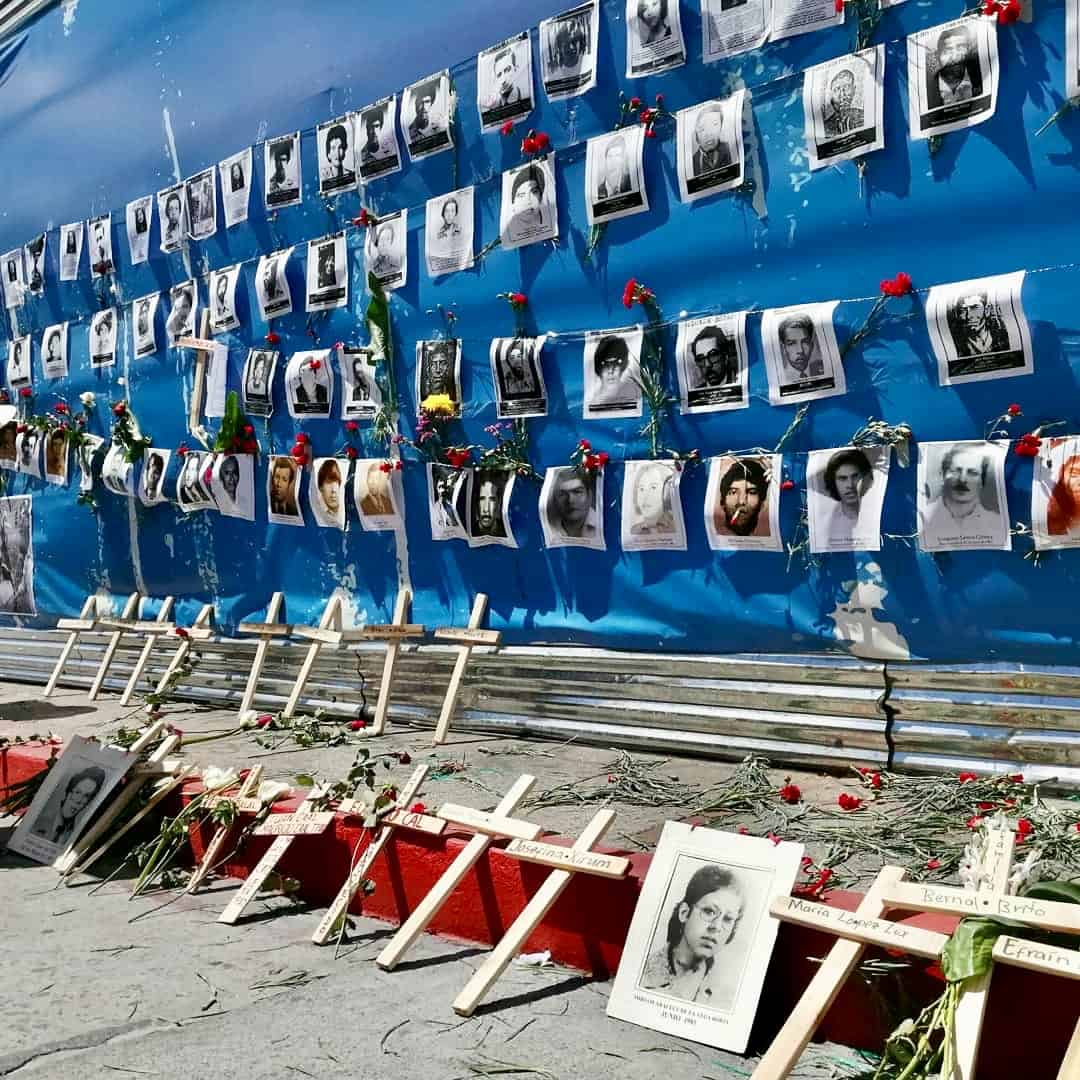
During the National Day of Dignification for Victims of the Internal Armed Conflict on February 25th, social organizations placed pictures of the disappeared and victims of the Internal Armed Conflict outside the Congress. Photo credit: Edith López Ovalle
Dear friends,
In past Solidarity Updates, I have written about the negative impacts that COVID was having on transitional justice cases and how the judicial branch was prioritizing hearings for the release of ex-military officers accused of war crimes. While all of these requests were dismissed, they delayed the forward movement of transitional justice cases and endangered our partners’ right to access justice.
Another grave setback came from President Giammattei, who closed by decree three critical institutions for survivors’ rights: the Secretary of Peace (SEPAZ), the Secretary of Agrarian Affairs (SAA), and the Presidential Coordinating Commission of the Executive Politics in Human Rights Matters (COPREDEH). This decree was a clear violation and dismissal of the 1996 Peace Accords. Furthermore, we continue to see Guatemalan economic and political elites seeking to control the Guatemalan judicial system in order to protect their impunity. One recent example of this was the naming of judges with questionable backgrounds into the Constitutional Court.
While progress in transitional justice is threatened, our partners continue to organize: they have taken legal actions, done virtual activities, and taken to the streets to commemorate their disappeared and murdered during the Internal Armed Conflict, to protest the elections of the Courts, and to join the activities for the International Women’s day on March 8.
Following our partners lead, we continue to accompany them remotely and uplift their demands and actions. Even though it is hard to navigate the many complexities of working virtually, specially with the inequity of access to technology, it is outstanding that this remote accompaniment model has allowed us to expand our capacity to be in contact with our partners. Just to put an example, since April 2020 we have had 12 bilateral meetings with them in which they evaluated our remote accompaniment work, shared their analysis of the situation in Guatemala; and shared requests with us.
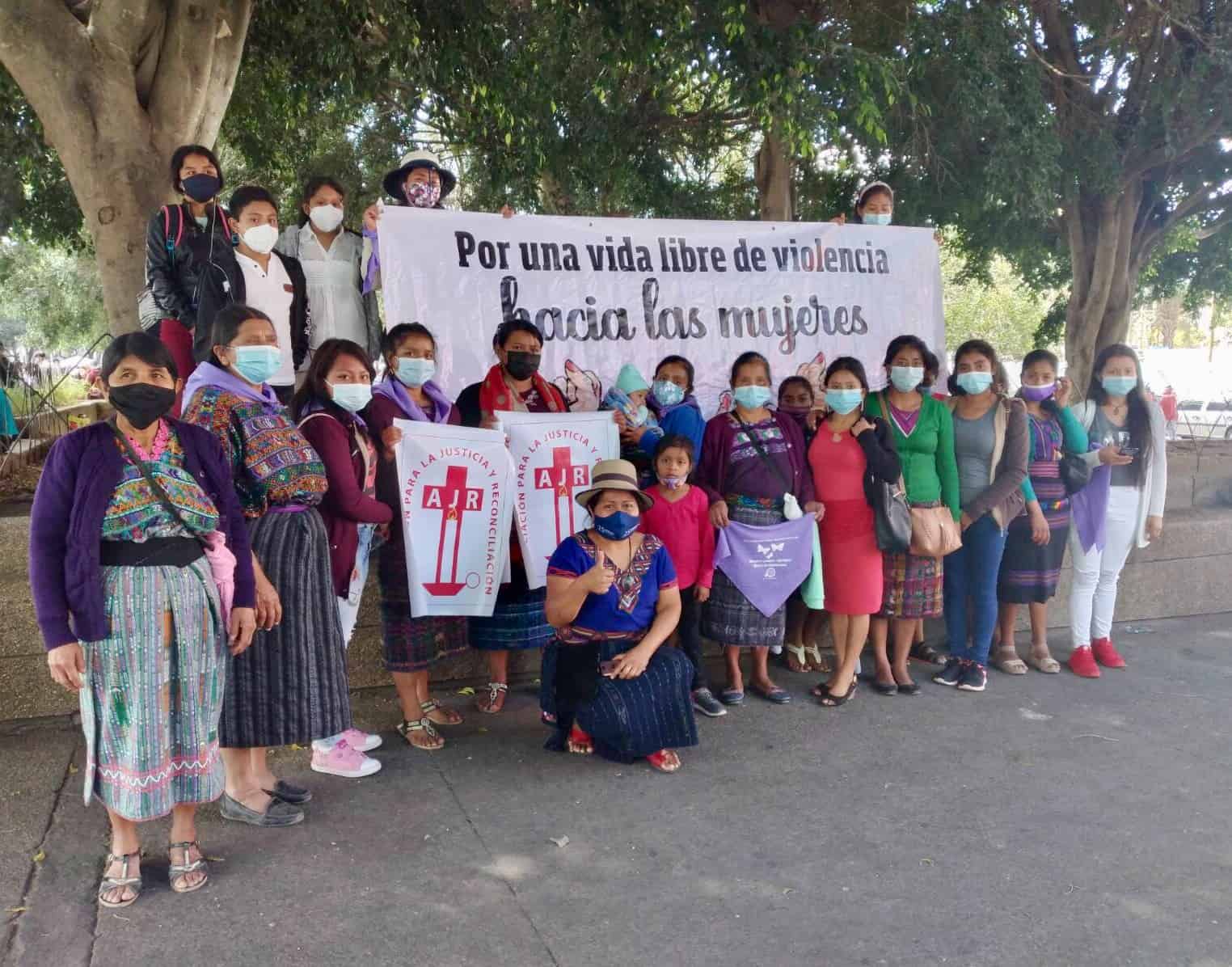
Members of the Association for Justice and Reconciliation (AJR) traveled to Guatemala City to participate on the International women’s day activities. Photo credit: AJR
Being away from Guate has been very difficult, but when I need to lift my spirit I remember the beautiful words of Fabiola from CALDH (Center for Human Rights Legal Action) in one of our meetings: “Reflecting on the history of our organizations, we remember you walking with genocide survivors together on our path towards justice. NISGUA has played a fundamental role that has varied over time. We feel very accompanied by you; you are willing to join us, to support us by sharing our declarations and to take your own stand in solidarity as well.”
I also think of our large, intergenerational and diverse network of supporters in the U.S. who are committed to the fight for justice in Guatemala and are also a fundamental piece that allows us to keep doing our work.
In solidarity,
Sarasuadi


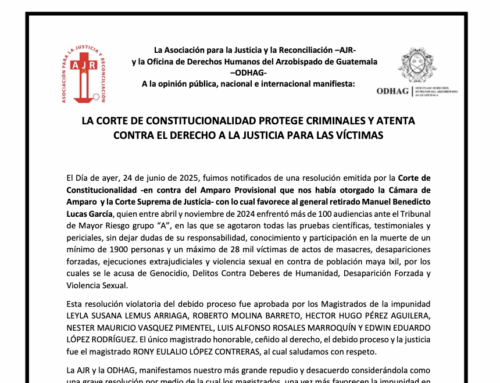
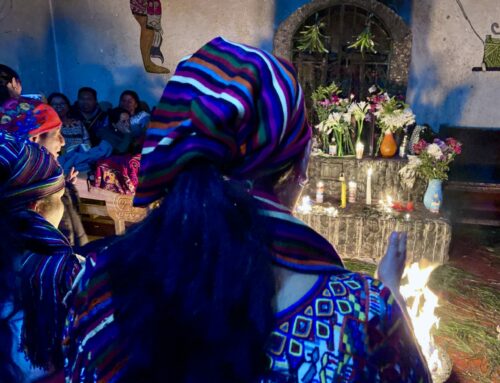
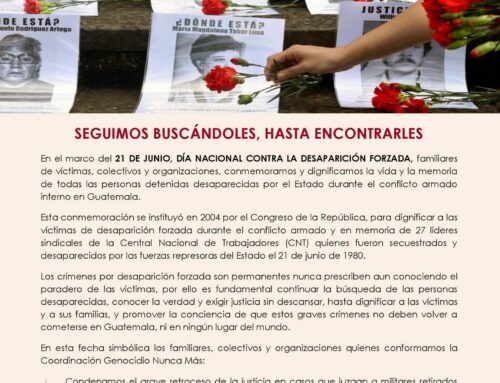
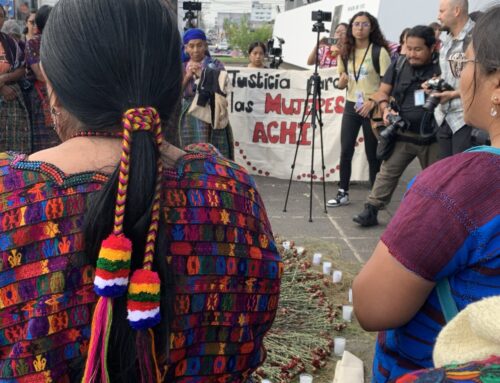
Leave A Comment